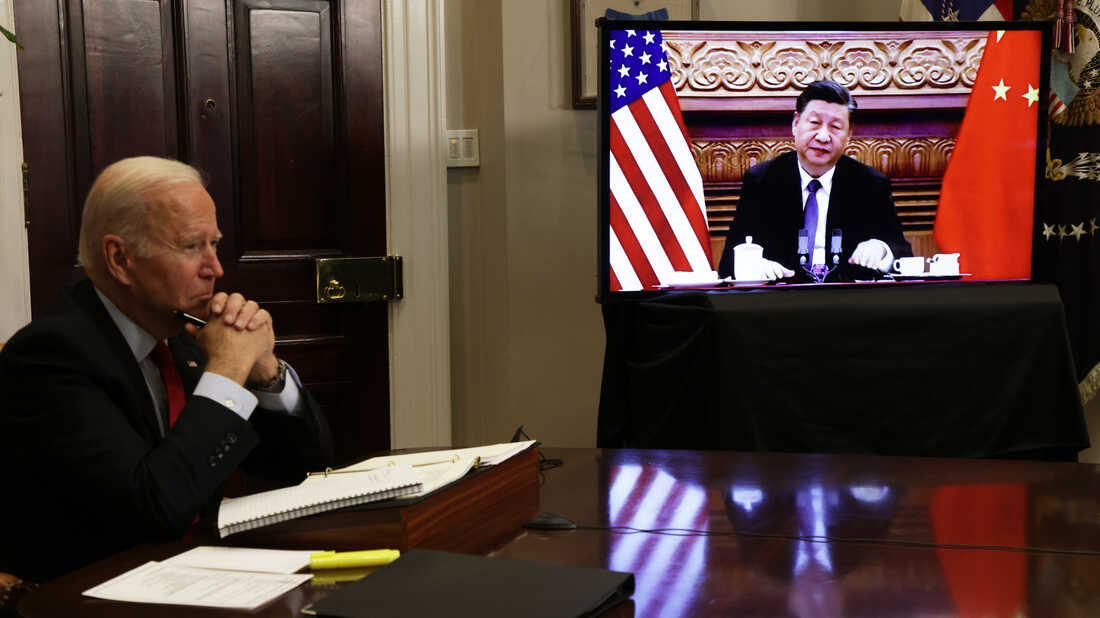
U.S. President Joe Biden participates in a virtual meeting with Chinese President Xi Jinping at the Roosevelt Room of the White House. Alex Wong/Getty Images hide caption

U.S. President Joe Biden participates in a virtual meeting with Chinese President Xi Jinping at the Roosevelt Room of the White House.
Alex Wong/Getty ImagesThis week's virtual summit between President Joe Biden and China's President Xi Jinping may have restored a tone of respect between the world's two largest powers, but U.S. intelligence is telling a different story.
NPR's Greg Myre reports on a national security conference held in Georgia last month where former and current U.S. intelligence officers were surprisingly candid about what they see as the biggest growing threat: China.
Email us at
This episode was produced by Lee Hale. It was edited by Fatma Tanis and Andrew Sussman. Additional reporting from John Ruwitch. Our executive producer is Cara Tallo.

 Live Radio
Live Radio